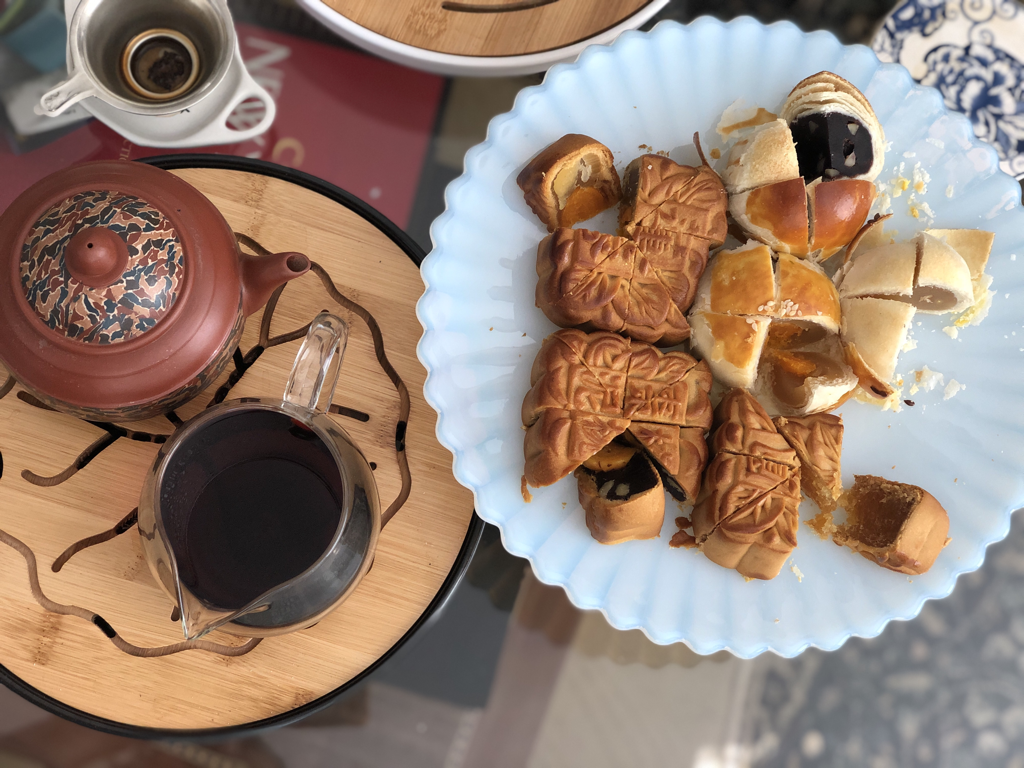|
The Moon Festival, also known a the Mid-Autumn Festival, is celebrated by Chinese and other Asian cultures. It is celebrated on the 15th day of the 8th month of the Lunar calendar, which falls on October 1st this year, but can fall anywhere between mid-September and early October. On this night there is a full moon. Each year, for the Moon Festival, my family buys moon cakes to eat, but that's the extent of my knowledge and experience with the celebration so I thought I'd do some digging to learn what this day is really all about. Here are some fun facts that I've learned about this 3,000 year old celebration:
Shang Dynasty (1600-1046 BCE) This festival has been celebrated since the Shang Dynasty, but at first just in celebration of harvest season. It wasn't until the Tang Dynasty (618-907 CE) that the celebration gained popularity as a festival. 3 Fundamental Values There are 3 fundamental values associated with this festival: gathering, thanksgiving, and praying. Families gather to give thanks for the harvest and for the union of their families, and then pray for all the things families oft pray for...babies, spouses, good health, fortune, longevity, and even beauty. Mythologies There are various mythologies associated with this day. One of them that I like is that the ancient Chinese associated the moon and water with rejuvenation. There's a fable that says the sun and moon are husband and wife and the stars are their children. When the moon is pregnant, she is round and full, hence, the full moon. Then she becomes a crescent moon once she gives birth. Another myth involves a hero's story. There was a year when ten suns rose in the sky together, and caused a lot of havoc on earth. So an archer, Hou Yi, shot down nine of them, and kept one for light. The Queen of Heaven admired Hou Yi's bravery and offered him an elixir of immortality. However, Hou Yi loved his wife, Chang'e, so much he didn't want to be immortal without her, so he gave it to his wife for safekeeping. When one of Hou Yi's apprentices tried to steal it while he was away, Chang'e refused to give it to him and downed the elixir, immediately flying into the sky. Loving her husband so much, she wanted to be close to him so chose to live on the moon. When Hou Yi came home and learned what happened, he was so sad he laid out fruits and cakes in the yard as sacrifices to her. As others learned of the story, they started to do the same and prayed to her as the Moon Goddess. Apparently, there's also a less romantic version of this story where the archer is actually a horrible tyrant and his wife takes the elixir so that he doesn't, saving the people from an immortal monster. Modern Day Celebrations Today, people continue to gather with friends and family, and the moon continues to symbolize union and harmony. So, it's often a time for family reunions. As you can guess, mooncakes are a big part of celebrating the Moon Festival, which are dense, round-shaped cakes imprinted with the Chinese word for longevity or harmony, and an intricate design baked into the top and filled with a bean paste. It's not a fluffy cake, but more like a pastry. Usually you'll find red bean or lotus paste, and possibly one or two salted duck egg yolks.s inside the cake, but these days you'll find them also in many other flavors. A favorite in our family is pineapple. Different regions may also have different variations. The cakes are usually small and fit into the palm of your hand. However, instead of each person getting their own cake, families cut the mooncakes into small pieces to share. Chinese culture is all about symbolism and the roundness of the moon represents wholeness. So, I think it's really nice that we are each getting a piece of the whole, reminding us that each of us makes up a whole. I feel like many traditions and foods in Chinese culture come from an ancient story, and mooncakes are no exception. While I've seen variations of specific details, according to folklore, the gist of the legend says that Ming revolutionaries used mooncakes to defeat the Mongolian rulers at the end of the Yuan dynasty by hiding messages in the cakes to tell everyone what to do. And that's how the Ming dynasty started. You may also find people celebrating with lanterns, and dragon and lion dances. Additionally, while it's a time for family, some couples enjoy a romantic evening, inspired by the love between Hou Yi and Chang'e, assuming you believe the romantic version of the story. A night under the moon, eating mooncakes, the air filled with good spirits...sounds like a romantic evening to me! For more cultural insights, please subscribe to our newsletter to stay up to date on new blogs!
0 Comments
Leave a Reply. |
Categories
All
|
|
|
© 2019-2021, the jawesome life. All rights reserved.
